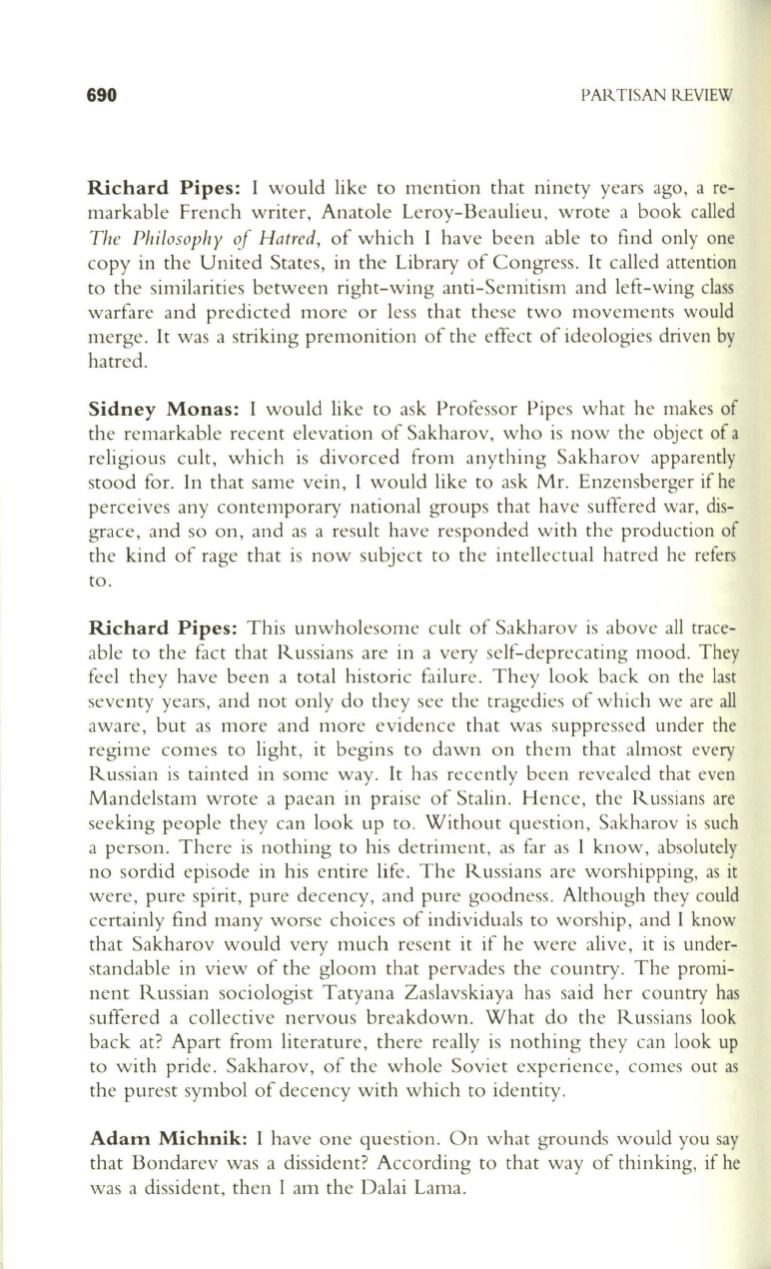
690
PAR.TISAN REVIEW
Richard Pipes:
I would like to mention that ninety years ago, a re–
markable French writer, Anatole Leroy-Beaulieu, wrote a book called
The Philosophy oj Hatred,
of which I have been able to find only one
copy in the United States, in the Library of Congress. It called attention
to the similarities between right-wing anti-Semitism and left-wing class
warfare and predicted more or less that these two movements would
merge. It was a striking premonition of the effect of ideologies driven by
hatred.
Sidney
Monas: I would like to ask Professor Pipes what he makes of
the remarkable recent elevation of Sakharov, who is now the object of a
religious cult, which is divorced from anything Sakharov apparently
stood for. In that same vein, I would like to ask Mr. Enzensberger if he
perceives any contemporary national groups that have suffered war, dis–
grace, and so on, and as a result have responded with the production of
the kind of rage that is now subject to the intellectual hatred he refers
to.
Richard Pipes:
This unwholesome cult of Sakharov is above all trace–
able
to
the fact that Russians are in a very self-deprecating mood. They
feel they have been a total historic failure. They look back on the last
seventy years, and not only do they see the tragedies of which we are
all
aware, but as more and more evidence that was suppressed under the
regime comes to light, it begins to dawn on them that almost every
Russian is tainted in some way. It has recently been revealed that even
Mandelstam wrote a paean in praise of Stalin. Hence, the Russians are
seeking people they can look up to. Without question, Sakharov is such
a person. There is nothing to his detriment, as far as I know, absolutely
no sordid episode in his entire life. The Russians are worshipping, as it
were, pure spirit, pure decency, and pure goodness. Although they could
certainly find many worse choices of individuals to worship, and I know
that Sakharov would very much resent it if he were alive, it is under–
standable in view of the gloom that pervades the country. The promi–
nent Russian sociologist Tatyana Zaslavskiaya has said her country has
suffered a collective nervous breakdown. What do the Russians look
back at? Apart from literature, there really is nothing they can look up
to with pride. Sakharov, of the whole Soviet experience, comes out as
the purest symbol of decency with which to identity.
Adam Michnik:
I have one question. On what grounds would you say
that Bondarev was a dissident? According to that way of thinking, if he
was a dissident, then I am the Dalai Lama.


